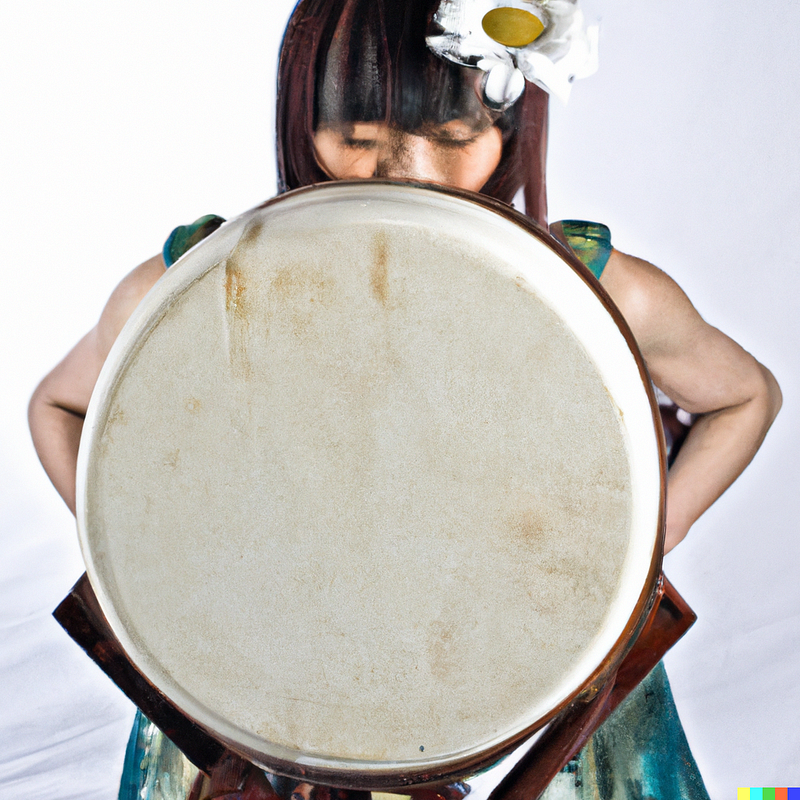One Thing Abnormal About My Transgender
In a maelstrom of normal, the eye of oddity is queerly quiet


In the Rodgers and Hammerstein musical “Flower Drum Song” lies a campy little ditty entitled “I Enjoy Being a Girl.” Laying aside the questionable social commentary of turning C.Y. Lee’s somber story of fleeing Communist China into a musical, consider the song on its own merit for a moment.
If any transgender person wonders whether cisgender people are capable of experiencing gender euphoria, I believe this song is the answer. Numerous artists have covered the song, including Doris Day, Peggy Lee, and the inimitable Phranc. Yes, it is absolutely possible to feel glad of your gender even if you never feel dysphoria!
At the moment, I can recall no other lyrics in the song other than the chorus: “I enjoy being a girl.” To be clear, I didn’t exactly listen to the song all the time before I wrote this article. In fact, I suspect I wouldn’t have wanted to listen to the song precisely because of gender dysphoria — those lyrics would have provoked a deep jealousy.
But the song comes to mind frequently as I navigate my gender transition. Unfortunately, I felt unable to articulate succinctly what the song means to me in an email response to my father’s widow — the subject of my last article. But I won’t belabor that communication further.
Instead, I recognize my past few articles have been a bit of a downer. Looking back over the last three months, I faced more severe depression than I acknowledged. That much is obvious to me now, although it took until last week for the pattern to emerge. But I also recognize I had amazing moments of happiness — maybe “euphoria” is the appropriate word to use here — that also deserve to be commemorated.
Of skirts and coffee
A Colorado March — while beautiful — is still cold. Despite the weather, I am adamantly wearing skirts these days. I spent too much of my life watching other women wear skirts while denying myself the pleasure. Now I am wearing one whether I freeze my patootie off or not. I can always go inside later.
Yesterday, I drove to the mall for coffee with my good friend Angus Day. As I walked toward the door (in my skirt), I discovered how much color the world has in it. There are no flowers in bloom in March, but I felt as if I saw them, anyway — their influence stained my vision.
The sky was a brilliant blue; the wind was crisp and dry. I felt the cold air on my bare legs as I walked. I had a growing sense of just how beautiful it is to be in the world.
Finally, I had no choice but to stop walking. I gently laid my shaking hand on a lamppost and looked up at the sun, eyes closed. I let the sun kiss me for a moment as I breathed — in, out — with a palpable contentment.
The Rodgers and Hammerstein song came to mind in this moment. With the sun on my face, the wind in my hair, the cold on my legs, I heard the voice in my head — the voice that was quiet for so long because I continued to shush it — that voice screamed out “I FUCKING LOVE BEING A GIRL!”
It is a fantastic feeling — truly a feeling out of my fantasies. I never knew life could be like this: enjoying colors, feeling beautiful, just…being alive.
Of fading reflections
I tried to write about this joy to my father’s widow, but I deleted the lines before I sent the email. I deleted them because I didn’t know how to say what I had to say. But now I must try, because that feeling is important to us all.
I spent much of my life not feeling. I didn’t feel emotions, and I struggled to feel physical pain. My hypothesis is that I could not identify with the external presentation of who was experiencing — a phenomenon I call The Reflection. My life was experienced as one long dissociation. Everything happened to another person.
Being able to dissociate has its value when ugly, unjust, and uncontrollable events occur — accidents, abuse, sickness, loneliness, and so on. Dissociation is less valuable when the pain offers lessons that could be learned. At 53, I am still figuring out what emotions feel like. I am still observing what I can understand about the world by observing what it makes me feel.
Dissociation becomes a burden when what we could do is feel the happiness life brings. Instead of feeling the joy of accomplishment — such as getting married to my wonderful wife, seeing the birth of our marvelous son, celebrating every one of those 53 birthdays — those events happened to somebody else, and I was on the outside.
Of the obvious
I realize what I describe above — feeling pain, learning from adversity, celebrating positives as the necessary balance of negatives — this is “normal” human experience. Feeling is what humans do, what some consider our Fatal Flaw in the memory of myths of perfect, amoral, unthinking automata lounging in a Garden of Eden where manna falls into our mouths.
But what I’ve lived is one long string of grey. There were few ups, many downs, and little chance to learn what it means to be human, which means little chance to improve the grey stream of days.
I don’t live a string of grey any longer. And what I tried to write to my father’s widow is that I am now able to live. Yes, my body lived before transition — at least, my body was vivified, as far as a biologist would characterize it. But I did not experience life.
And now, these small, fragile moments like the one I wrote about above — feeling the sun, talking to other women about nail polish, being able not only to act as who I am, but to feel it as I do it… How do I describe that?
My father’s widow already knows. She likely takes those moments for granted. That’s why I couldn’t write about it. I would have written something along the lines of “…and now I feel things, in a very typical and common human experience — except to me it is an epiphany to read a poem, a rapture to consider ice on the branch of a tree.”
I don’t think she would have understood — not because she isn’t capable of understanding, but because she understands it too well. The very mundanity of the experience blinds her to its profundity.
Of the future
I feel now like a three-year old girl looking out the window at a world filled with promise. And yet I feel as if I were Sir Isaac Newton’s three-year old daughter (I know Newton is believed to have died a virgin; let me spin an allegory here).
On a bright afternoon, with the sun streaming through the window, I pick up a toy, hold it out, and let it fall from my chubby little hand. Maybe I drop the toy over and over — for hours, in the life as play as work the young live.
As realization strikes me, I look up at my father, with radiant brow, tears in my eyes, face aglow, proclaiming “Daddy…look! It falls every single time.”
I hope Newton would be indulging enough not to allow his daughter to hear the clunk that occurred from rolling his eyes as hard as he would. And yet this is my revelation.
I could not express what I wanted to at the moment. I don’t believe I’ve expressed it well now. There is such joy in life — now, anyway. I don’t believe my father’s widow would have seen the big deal. In fact, she might have thought lucky me — now I get to experience the pain of life for real.
Yes…yes, thank the Goddess…yes, I do.




